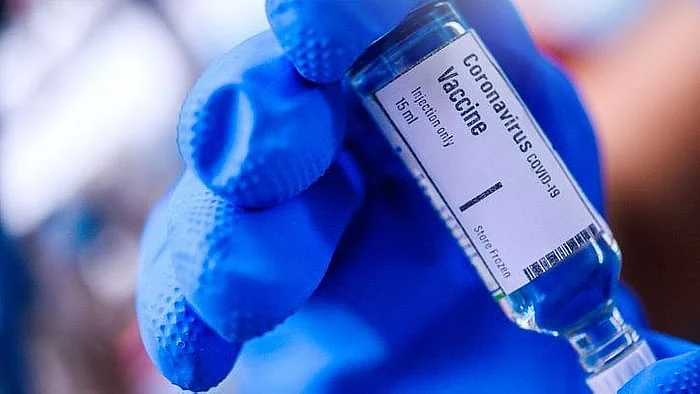Why Oxford Vaccine, With 70% Effectiveness, is India’s Best Bet
The Oxford jab is reportedly both cheaper and easier to store and transport in comparison to other options.

advertisement
The COVID-19 vaccine developed by the University of Oxford and AstraZeneca has proved to be 70 percent effective after a large-scale trial.
The Oxford University said that the interim analysis from its phase three vaccine trial shows that the 70 percent effectiveness comes from combining two doses.
A total of 131 COVID-19 cases were studied during the interim trial.
The participants were given two high doses, which showed 62 percent efficiency, but it rose to 90 percent when they were given a half dose, followed by a high one, reported BBC.
Professor Andrew Pollard, Director of the Oxford Vaccine Group and Chief Investigator of the Oxford Vaccine Trial, said that the findings show that one of the dosing regimes maybe around 90 percent effective and if this dosing regimen is used, more people could be vaccinated with planned vaccine supply.
The study also showed that there were no hospitalised or severe cases in anyone who received the vaccine.
AstraZeneca chief executive Pascal Soriot also said that “the vaccine’s simple supply chain and our no-profit pledge and commitment to broad, equitable and timely access mean it will be affordable and globally available, supplying hundreds of millions of doses on approval,” The Guardian reported.
The UK government has pre-ordered 100 million doses of the Oxford vaccine, reported BBC.
'Covidshield: Low-Cost, Logistically Manageable'
Aadar Poonawalla, the Chief Executive Officer at Serum Institute of India, said that that the vaccine is a low-cost, logistically manageable and will be available soon.
He also stated that more details on the vaccine will be out soon.
“COVID-19 vaccine will offer protection up to 90% in one type of dosage regime and 62% in the other dosage regime. Further details on this, will be provided this evening,” Poonawalla tweeted.
What Does This Mean for India?
For India, this is good news. Serum Institute of India, the Indian manufacturer of the vaccine, dubbed Covishield in the country, has said that it will be keeping half its vaccines for the country. They are already manufacturing 40-50 million vaccines a month. In India, phase 3 trials for the Oxford vaccine are set to begin after the recruitment was recently completed.
An earlier analysis by CreditSuisse has also indicated that India will depend upon Oxford, Nonovax and Johnson & Johnson for its vaccine needs. This is because their temperature range is 2-8-degree Celsius. Moderna or Pfizer do not feature in the list, the bottleneck being cold storage infrastructure (especially refrigerated vans).
Another reason this vaccine offers more hope in India is the relatively simpler supply chain requirements, and the 'no-profit' pledge that the company has taken.
When Will We Get it in India?
Currently, Phase 3 trials of the vaccine are on across India in collaboration with Serum Institute and ICMR. Recently, the investigators finished recruiting for Phase 3 of the Covishield human trials. 1,600 participants have been enrolled. Once the trial is over, and the data examined and studied, a green signal can be given for emergency use. Though some reports indicate SII will apply for emergency use as soon as next month.
According to The Hindu, an SII official says nearly 100 million Covishield vials will be in stock by January 2021. Covishield is likely to be available for the rest of the public by March-April 2021, Adar Poonawalla, CEO of SII said in a summit recently.
Pfizer, Moderna 95% Effective: Study
Meanwhile, US pharmaceutical Pfizer announced on Wednesday that a final analysis of clinical-trial data from its COVID-19 vaccine trial shows that the shot is 95 percent effective and that the vaccine also protects older people from the infection.
Pharmaceutical company Moderna also joined in the COVID-19 vaccine race by revealing that its candidate vaccine has shown 94.5 percent efficacy in early phase III trial results.
(With inputs from BBC, Guardian, CNBC)
(At The Quint, we question everything. Play an active role in shaping our journalism by becoming a member today.)